
Mai Elisabeth Zetterling was a Swedish actress, novelist and film director.

Albert Finney was an English actor. He attended the Royal Academy of Dramatic Art and worked in the theatre before attaining prominence on screen in the early 1960s, debuting with The Entertainer (1960), directed by Tony Richardson, who had previously directed him in the theatre. He maintained a successful career in theatre, film and television.

Julie Frances Christie is a British actress. An icon of the "Swinging Sixties," Christie is the recipient of numerous accolades including an Oscar, a Golden Globe, a BAFTA Award, and a Screen Actors Guild Award. She has appeared in six films ranked in the British Film Institute's BFI Top 100 British films of the 20th century, and in 1997, she received the BAFTA Fellowship.

Kenneth Cooper Annakin, OBE was an English film director.
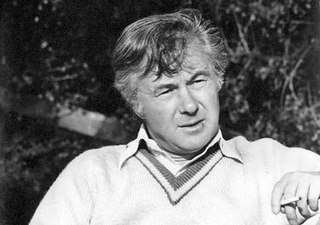
Bryan Forbes CBE was an English film director, screenwriter, film producer, actor and novelist described as a "Renaissance man" and "one of the most important figures in the British film industry".
The British New Wave is a style of films released in Great Britain between 1959 and 1963. The label is a translation of Nouvelle Vague, the French term first applied to the films of François Truffaut, and Jean-Luc Godard among others.
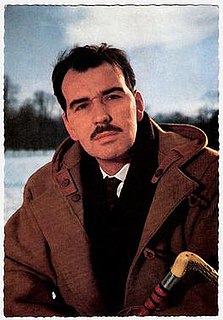
Bernhard Wicki was an Austrian actor and film director.
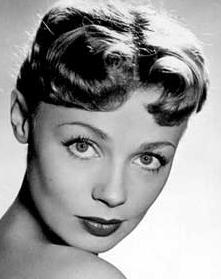
Dany Robin was a French actress of the 1950s and the 1960s.
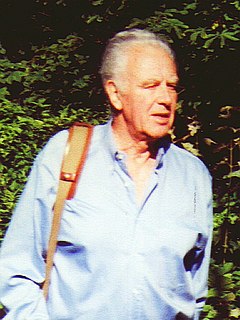
Philip Saville was a British director, screenwriter and former actor whose career lasted half a century. The British Film Institute's Screenonline website described Saville as "one of Britain's most prolific and pioneering television and film directors". His work included 45 contributions to Armchair Theatre (1956–1972) and he won two Best Drama Series BAFTAs for Boys from the Blackstuff (1982) and The Life and Loves of a She-Devil (1986).
Peter Taylor was an English film editor with more than 30 film credits. Perhaps his best remembered contribution is the editing of the 1957 film The Bridge on the River Kwai.

Montgomery Tully was an Irish film director and writer.

Dianne Foster was a Canadian actress of Ukrainian descent.
The Waltz of the Toreadors is a 1951 play by Jean Anouilh.
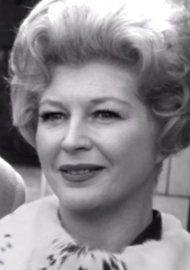
Vanda Godsell was an English actress. Hal Erickson writes in Allmovie, "Vanda Godsell specialised in playing disheveled housewives, busybody landladies and blowsy domestics." She appeared as Mrs Weaver in This Sporting Life (1963), Mrs Pitt in Bitter Harvest (1965), Mrs Goodge in The Wrong Box (1967)
George Pollock was a British film director, best known for bringing Agatha Christie's detective Miss Marple to the big screen for the first time, starring Margaret Rutherford.

Adelphi Films Limited was a British film production company. With its sister company Advance, it produced over 30 films in the 1940s and 1950s and distributed many more. Adelphi linked Gainsborough Pictures and the raw “kitchen sink” dramas of the early 1960s.

John Guillermin was a French-British film director, writer and producer who was most active in big budget, action adventure films throughout his lengthy career.
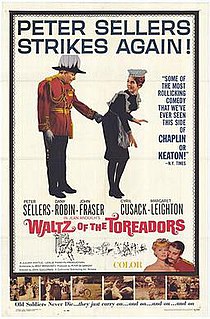
Waltz of the Toreadors is a 1962 film directed by John Guillermin and starring Peter Sellers and Dany Robin. It was based on the play of the same name by Jean Anouilh with the location changed from France to England. It was nominated for a BAFTA Award for Best British Screenplay, in 1963.

Julian Wintle (1913–1980) was a British film and TV producer who battled with haemophilia throughout his life.
Harry Pottle (1925–1998) was a British art director.















